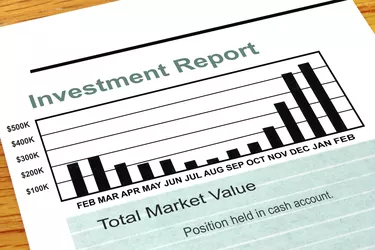
Mutual funds are regulated by the Securities and Exchange Commission under the provisions of the Investment Company Act of 1940. Unlike lightly regulated hedge funds, mutual funds are usually prohibited from engaging in high-risk transactions like selling stock short. However, "long-short" funds that comply with special SEC requirements are allowed to short stocks.
Long-Short Mutual Funds
Video of the Day
A long-short mutual fund carries out short sales just as individual investors do. The fund sells shares it doesn't own and must eventually buy shares to complete the short sale. If in the meantime the stock goes down, the cost of buying the shares is less than the proceeds of the sale and the fund makes a profit for its investors. Most mutual funds follow the traditional "long only" model of investing. For one thing, a long-short fund faces some restrictions. The fund must enter into a three-party collateral agreement with its bank and investors that makes fund assets collateral for short sales or margin trades. Assets to cover short sales must be segregated from other fund holdings. The use of short sales must be disclosed in the fund prospectus. Another reason few mutual funds short-sell stocks is that operating a long-short fund is expensive. Market Watch reports that long-short funds average more than 2 percent annually in fees compared to 1.3 percent for traditional funds.
Video of the Day